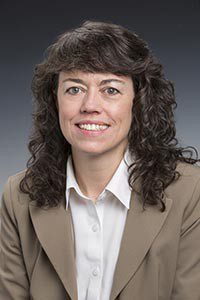By Donna Schantz
Executive Director
Public trust in our oil spill prevention and response system took many years to rebuild after the 1989 Exxon Valdez oil spill. It took a commitment to transparency, listening, and engaging stakeholders in developing and maintaining the system of safeguards for the Valdez Marine Terminal and associated tankers that we have today.

This system is now widely regarded as one of the best in the world. Strong State of Alaska statutes and regulations have supported this robust system. The lack of significant spills in Prince William Sound over the last 30 years indicates the effectiveness of industry meeting or exceeding regulatory requirements.
Trust in the system is at risk
Over the past few years, the Council has been seeing a steady erosion in regulatory oversight, staffing, funding, and coordination among many of the federal and state agencies responsible for enforcing strong laws and regulations. This alarming erosion has already started to reduce public trust in our prevention and response system.
In enacting the Oil Pollution Act of 1990, Congress determined that only when local citizens are involved in oil transport will the trust develop that is necessary to change the system from confrontation to consensus, and so the Act called for creation of citizen councils. Our Council is a unique partner for industry and regulators, giving them a platform to provide information, answer questions, listen to stakeholders, and cultivate the long-term relationships that are necessary to establish public trust.
While the Council has had disagreements with industry over the years, there have been numerous examples of industry, regulators, and citizens working cooperatively and collaboratively to find solutions. The success of these collaborative processes has been founded upon the transparent sharing of technical and scientific information; stakeholders felt informed, heard, and included in the process, resulting in trust and acceptance of the results.
However, an effort is currently underway to reform current oil spill regulations and statutes, reportedly to make them less burdensome on industry. We have seen a shift in philosophy among some decision makers that the details in the oil spill prevention and response contingency plans, and the regulations that guide them, are unnecessary and distracting. However, there is a lack of clear information on what is problematic.
It is unreasonable to claim now, decades later, that existing requirements are too onerous on industry. Industry has demonstrated a commitment to the environment through safer operations, implementing new technologies, and integrating lessons learned. Alyeska Pipeline Service Company and the Trans Alaska Pipeline System tanker operators have worked with regulators and citizens for 30 years to continuously improve the system and operate profitably. Any perceived financial burden to industry should be weighed against the devastation and enormous burden another major oil spill would place on the people, fish, wildlife, and environment of our region.
It appears that some may not fully understand or appreciate the legacy they have been entrusted to protect. Without transparency about what direction this potential regulatory reform may be going, it is difficult for those with historical knowledge, like the Council, to respond and advise.
Transparency is the antidote to mistrust
The Alaska Oil Spill Commission found that starting in 1981 there was a dramatic decline in regulatory oversight, and that decline contributed to the Exxon Valdez oil spill. An official recommendation to the Alaska legislature after the 1989 Exxon Valdez oil spill was, “The nation and the state need strong, alert regulatory agencies fully funded to scrutinize and safeguard the shipment of oil.”
As those who experienced firsthand the devastation of the 1989 spill are retiring or are no longer with us, the Council has increasingly become a repository of the knowledge and lessons from that disaster.
We hope that any movement towards regulatory changes will include a thorough public input process with adequate time for information to be shared, reviewed, and commented on. Only through active citizen engagement and community relationship building can public trust in the oil spill prevention and response system be upheld.
The Council will do everything possible to make sure the safeguards put in place over the past 30 years are not weakened, and to protect the region’s stakeholders who would be most impacted by another catastrophic spill. The Council was created for this role, in anticipation of the time when enough of the memory of Exxon Valdez oil spill had faded such that the robust system put in place to prevent an accident like that from ever happening again begins to look overbearing and burdensome. The Council continues to raise awareness and provide reasonable and justified resistance to regulatory and statutory changes that could weaken existing protections.